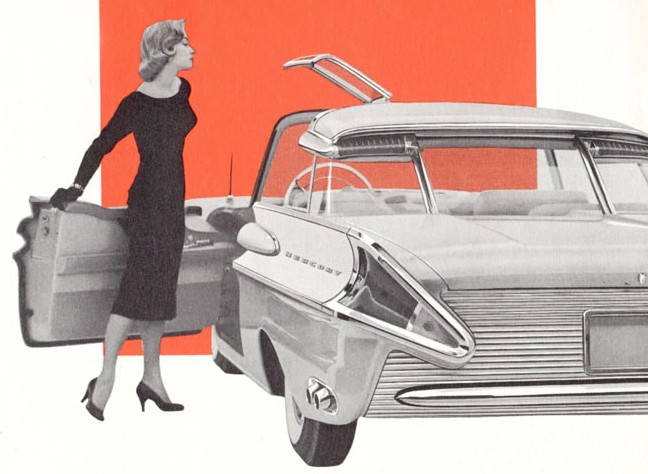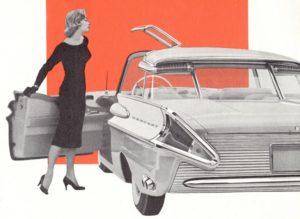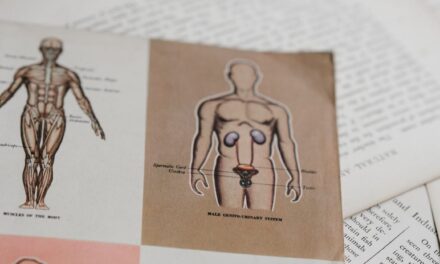Editorial Assistant Afsheen Farhadi: In issue 15.2‘s “Gil Butsen Ford,” Steve Amick dramatizes the logic of advertising—the promise to deliver happiness as balm for the consumer’s deepest pain. This is found in the language of advertisements, which often use words like love, kindness, family, words out of place, too weighty and meaningful for the exchange of money at the core of the ad’s persuasive agenda. In Amick’s story, the voice of the advertisement not only makes these lofty and impossible promises, but does so with a specificity that both highlights the absurdity of advertising and tells a remarkably complete story, all in about four pages.
The absurdity of the pairing between the capitalistically practical and the emotional begins with the lines:
“You come on down to Gil Butsen Ford, and the first thing we’re looking to put you in is a good mood. Second, we’ll put you in a brand-new or previously owned Ford vehicle, but first thing is that stuff about the mood.”
Throughout the story, Amick is able to raise the stakes of these pairings, thereby increasing the absurdity and hilarity. The consumer-protagonist is a recent divorcée and mother, struggling to rebuild her social life after the traumatic end of her marriage. We’re told her story through the language of the ad, which attempts to isolate and address her vulnerabilities. We discover her justification for buying a car: She gave her husband the 2016 Explorer—the car she was driving when she discovered his affair—in the divorce. Gil Butsen Ford will, the ad promises, help the protagonist “stop looking to the past.” Additionally, the sound systems of the cars at Gil Butsen Ford can be used to drown out the toxic voices of the highly critical women at her workplace. Gil Butsen Ford can offer friendship and camaraderie and protection during the consumer’s difficult transition back into dating:

“Come on down to Gil Butsen Ford this week, and T. T. and Uncle Eddie in the Service Department will show you how to cripple a guy if he gets out of line—with just a sharp stomp on his instep with the heel of your shoe. And while you’re here, the gals in Accounting will help you pick out shoes from Zappos to wear with that new dress for Saturday night.”
Throughout the story, another kind of pairing emerges: that of tragedy and humor. Amick is able to negotiate that juxtaposition with a precision of language that shows how the two often coexist in a convoluted relationship, with genuine tragedy underlying the humor and humor often sprouting from the soil of tragedy.
Afsheen Farhadi‘s short fiction and essays have appeared in Colorado Review, Witness, The Millions, The Rumpus, The Florida Review, Vol. 1 Brooklyn, and elsewhere. He is currently a Provost Graduate Fellow in the creative writing PhD program at the University of Cincinnati and can be found on Twitter @AfsheenFarhadi.
To order Issue 15.2 or a CR subscription, visit our online store.












